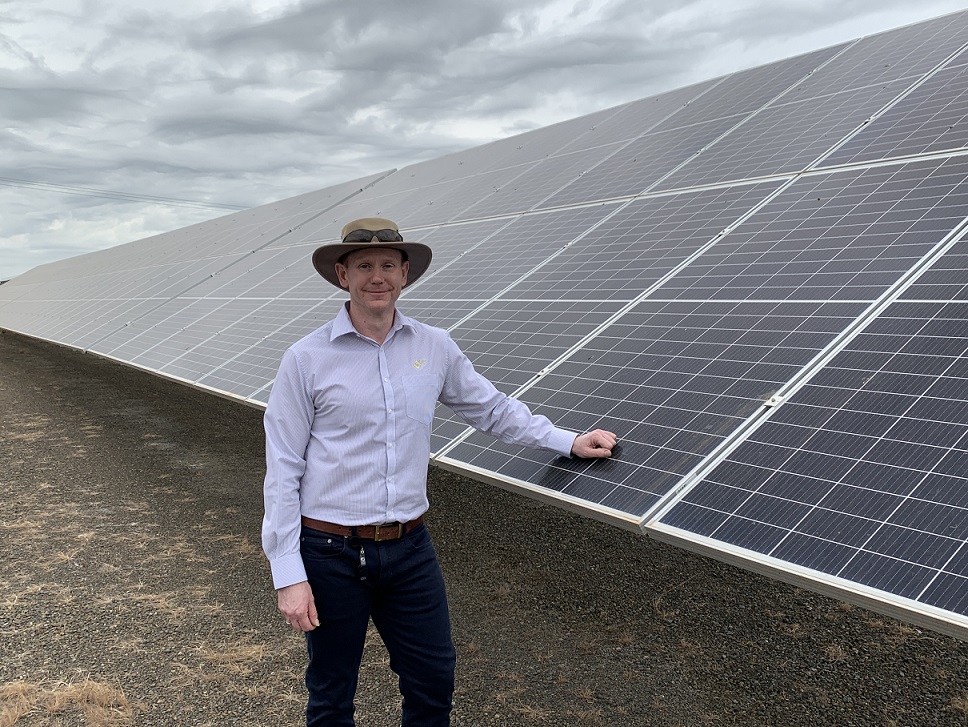3 November 2021
Goulburn Valley Water will join an international race to beat climate change by committing to net zero by 2050 through a global alliance dedicated to reducing emissions.
The Race to Zero is a United Nations-backed global campaign which brings together companies, cities, regions, financial and education institutions to take decisive and immediate action to tackle climate change and deliver a healthier, fairer, zero carbon world.
Australian, New Zealand and UK water authorities have pledged to join the initiative, as part of an alliance between peak industry bodies Water Services Association of Australia and WaterUK. Thirteen Australian and one New Zealand water authority are part of the alliance, with more set to join in the future.
The partnership was announced on Monday at the United Nations’ Climate Change Conference of Parties 26 (COP26) in Glasgow.
Treating water and wastewater are energy intensive processes, which can also create gases like methane during the wastewater breakdown process.
Goulburn Valley Water Managing Director Steve Capewell said committing to the Race to Zero is vital for the future growth and prosperity of the Goulburn Valley region.
“Climate change is undoubtedly one of most pressing issues we currently face, and it has far-reaching serious repercussions for the water industry, particularly in a warmer and drier climate,” he said.
“We have a responsibility to take action where we can, and in committing to Race to Zero on an international stage in a global partnership, we’ve set a clear goal for GVW to meet in helping to mitigate climate change impacts.
“We’re proud to be part of the water sector as leading industry that is proactively addressing this issue, and it will be a great opportunity for us to embrace technology and partnerships to achieve our objectives in creating a sustainable and prosperous future for our region.”
Under Victoria’s water plan Water for Victoria, the Victorian water sector committed to leading on climate change and setting ambitious emissions reduction targets on the path to net-zero. As well as reaching net zero by 2050, GVW has pledged to reduce carbon emissions to 37,416 tonnes of carbon dioxide equivalent by 2025 as part of an interim target, down from 71,742 tCO2e in 2020-21.
To contribute towards the achievement of the Victorian Government’s strong renewable energy targets, all electricity will be sourced from renewable sources by 2025, including from GVW’s own solar systems, which have generated more than 2570 megawatt hours from 4900 panels since they were installed in early 2020. A further 250 kilowatt of solar panels will be commissioned in early 2022.
High efficiency wastewater treatment gas capture at our Shepparton and Tatura wastewater management facilities will also help meet the emissions target. GVW will also develop additional emission reduction initiatives over the next 12 months.
Water Services Association of Australian Executive Director Adam Lovell said while climate change is already causing irreversible harm, there were unique opportunities.
“The urban water industry is at the cutting edge of many innovations to reduce its carbon footprint like producing renewable energy from food waste, harvesting the valuable resources that can be recovered through wastewater treatment, producing green hydrogen and ammonia which can be used as green fuels, using significant land corridors and reservoirs for solar panels and transitioning to electric vehicles,” Mr Lovell said.
“There are also many other water utilities who are well on their way in contributing to a net zero future and may join the Race to Zero campaign in the coming months. The industry is on the front foot in this rapidly evolving area, especially in light of the recent Intergovernmental Panel on Climate Change report on climate change.”
For the first time, COP26 – which is running from November 1-12 – will include a Water and Climate Change Pavilion to highlight the importance of water in climate solutions.
The 14 Australian and New Zealand water utilities collectively serve more than 18 million customers, have 160,000km of water and wastewater pipelines, and 354 treatment plants.
 MD Steve Capwell with solar panels at one of Goulburn Valley Water's Shepparton sites.
MD Steve Capwell with solar panels at one of Goulburn Valley Water's Shepparton sites.